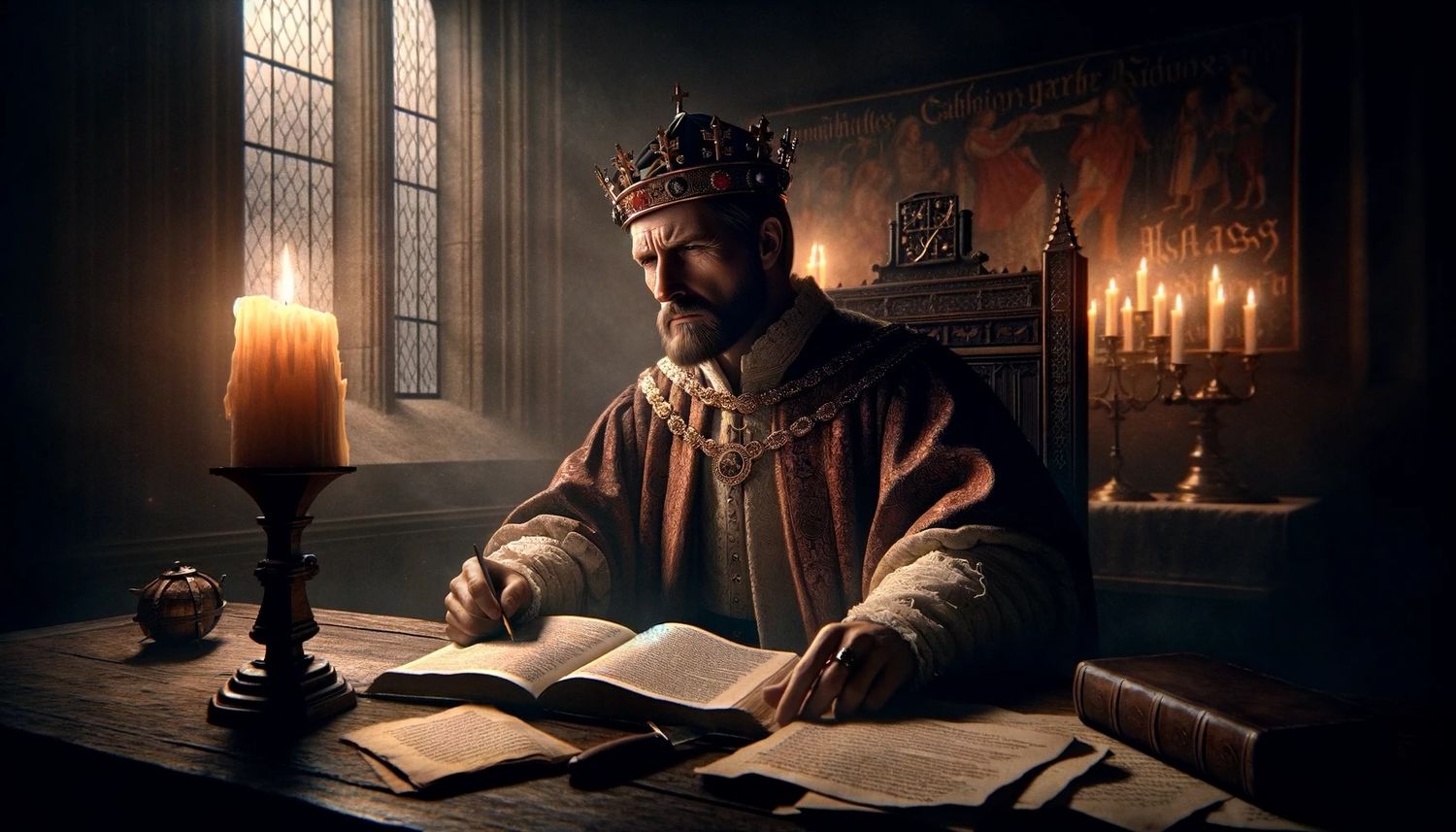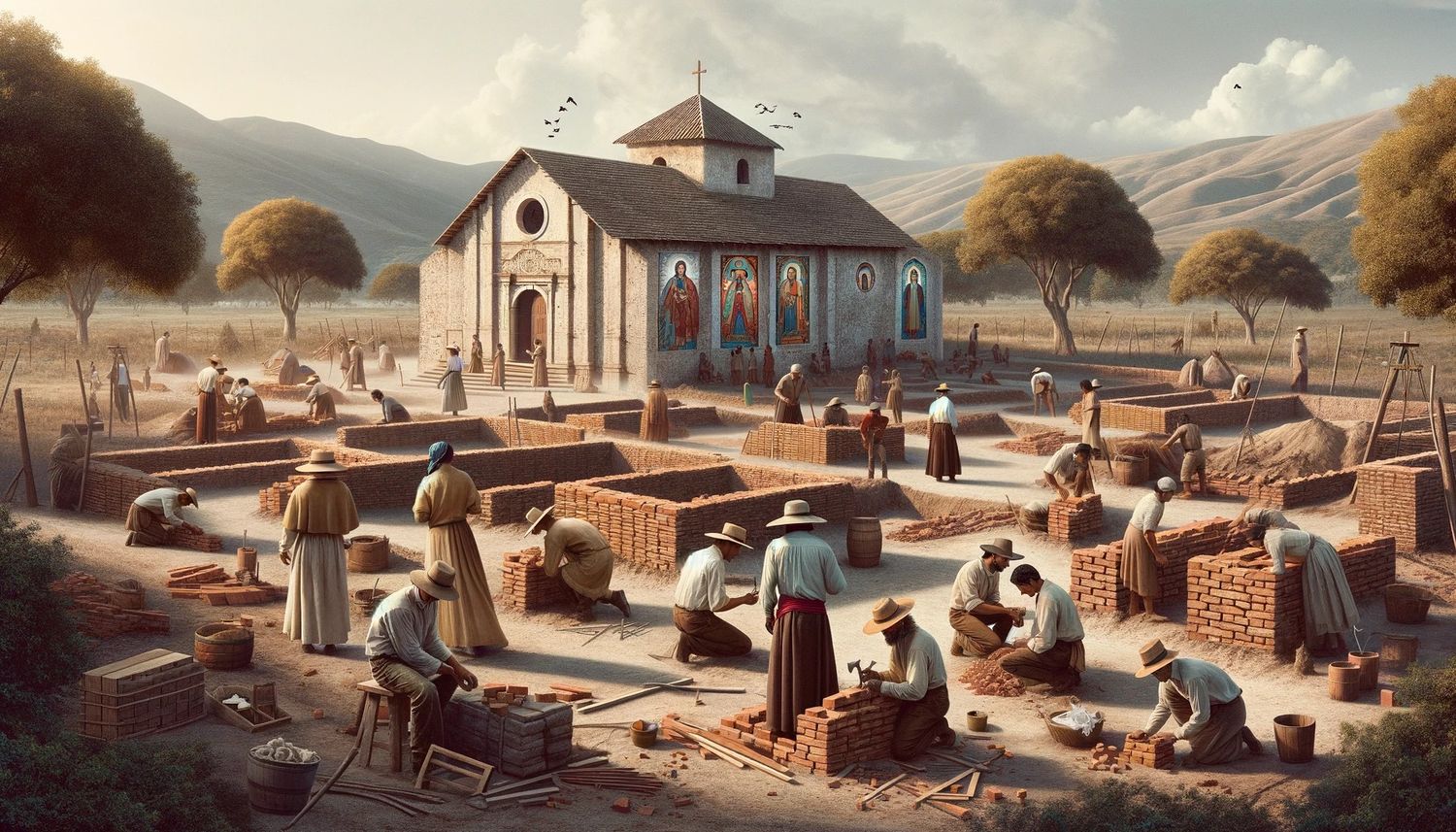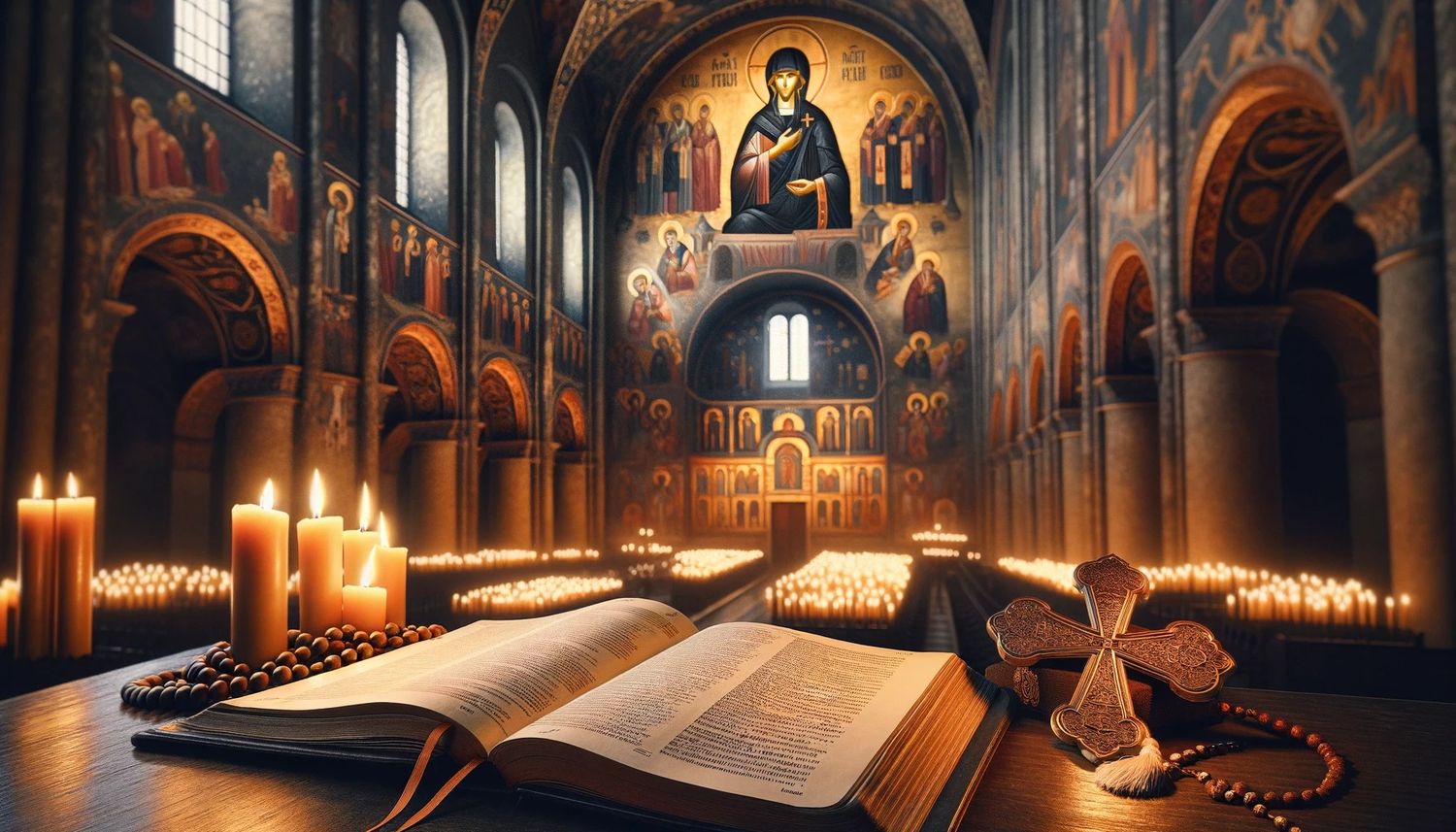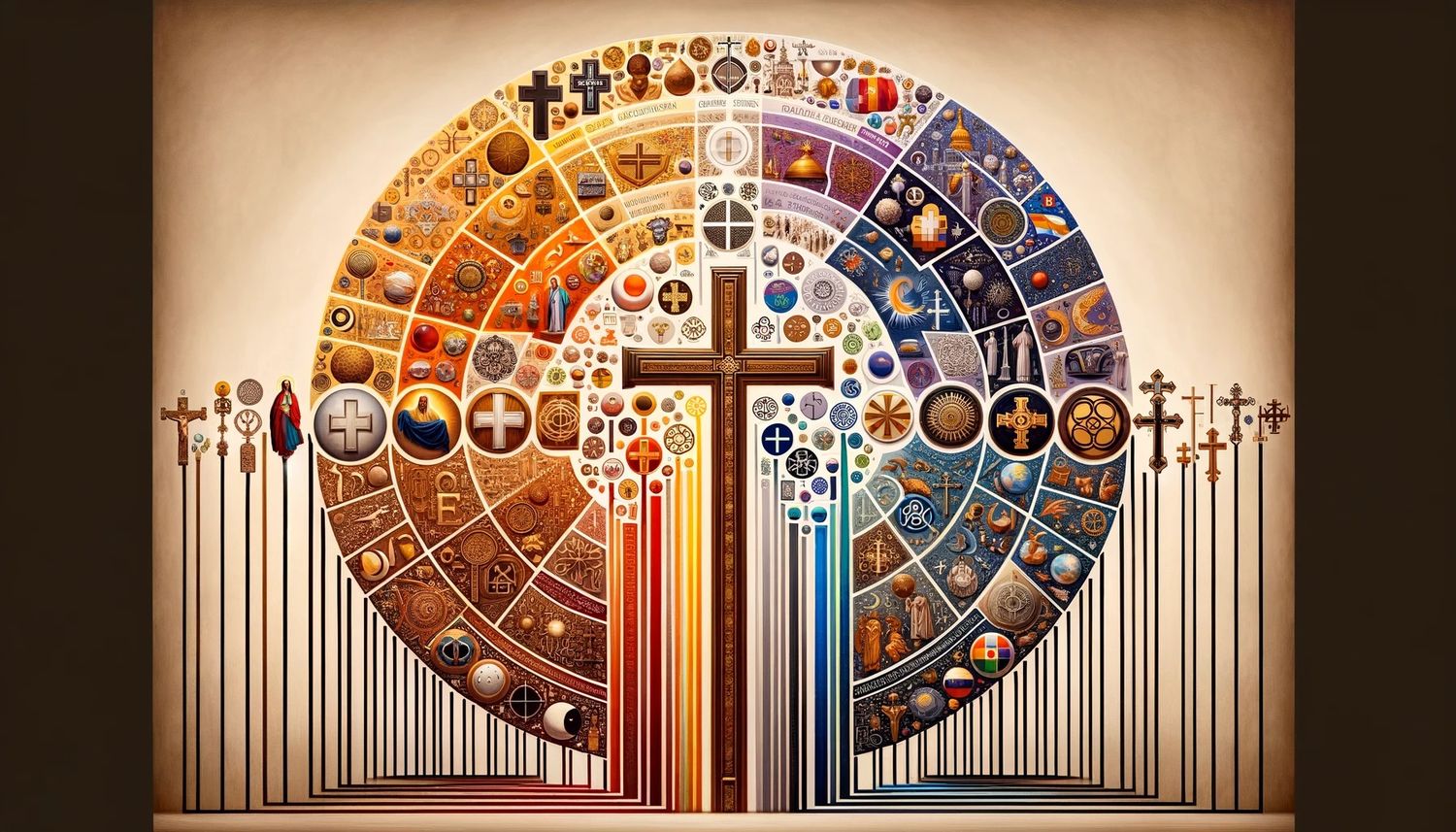Home>Theology and Spirituality>Why Did Clovis Convert To Catholicism


Theology and Spirituality
Why Did Clovis Convert To Catholicism
Published: February 16, 2024
Jason DeRose, Managing Editor at Christian.net, uses his expertise in religion and journalism to deepen understanding of faith's societal impacts. His editorial leadership, coupled with a strong academic background, enriches the platform’s diverse content, earning him recognition in both journalism and religious circles.
Discover the reasons behind Clovis's conversion to Catholicism and its impact on theology and spirituality. Explore the historical and religious significance of this pivotal event.
(Many of the links in this article redirect to a specific reviewed product. Your purchase of these products through affiliate links helps to generate commission for Christian.net, at no extra cost. Learn more)
Table of Contents
Introduction
The conversion of Clovis, the first king of the Franks to unite all the Frankish tribes under one ruler, to Catholicism is a pivotal moment in the history of Christianity and the Frankish kingdom. This significant event, which took place in the late 5th century, marked the beginning of a new era for the Franks and had far-reaching implications for the future of Europe.
Clovis' conversion to Catholicism is a compelling story that intertwines elements of faith, politics, and personal relationships. It offers a fascinating glimpse into the complex dynamics of power, belief systems, and the interplay between individual choices and broader historical forces.
In this article, we will delve into the multifaceted factors that contributed to Clovis' decision to embrace Catholicism. We will explore the role of his wife, the political motivations behind his conversion, the influence of Christian advisors, and the enduring impact of his embrace of Christianity on the Frankish kingdom and beyond.
By examining the intricacies of Clovis' conversion, we can gain valuable insights into the interconnectedness of religion and politics, the significance of personal convictions in shaping historical events, and the enduring legacy of this pivotal moment in the annals of European history. Join us on this captivating journey through the life and times of Clovis, as we unravel the compelling narrative of his conversion to Catholicism and its enduring impact on the course of history.
Read more: Why Did James II Convert To Catholicism
The Conversion of Clovis
Clovis, the ambitious and astute ruler of the Franks, stands at the crossroads of history, poised to make a decision that would reverberate through the centuries. The story of his conversion to Catholicism is a tapestry woven with threads of ambition, strategic foresight, and a profound shift in religious allegiance.
In the tumultuous landscape of 5th-century Europe, Clovis emerged as a formidable leader, driven by a relentless desire to expand his dominion and solidify his authority. His encounter with the Christian faith, against the backdrop of a polytheistic society, presented a compelling opportunity for consolidation and transformation.
Amidst the swirling currents of political intrigue and territorial conquests, Clovis found himself drawn to the teachings of Christianity. The prospect of aligning himself with a faith that held sway over the hearts and minds of a significant portion of the population was undoubtedly a strategic consideration for the ambitious king.
The pivotal moment of Clovis' baptism, which took place in Reims, marked a profound shift in the religious landscape of the Frankish kingdom. By embracing Catholicism, Clovis not only signaled his personal commitment to a new belief system but also positioned himself as a patron of the Christian faith, thereby garnering the support and allegiance of a substantial segment of his subjects.
The conversion of Clovis was not merely a symbolic gesture; it was a calculated move that carried far-reaching implications. It served as a unifying force, bridging the divide between the ruler and his Christian subjects, and laying the groundwork for a new era of religious and political cohesion within the Frankish realm.
Clovis' embrace of Catholicism was a watershed moment that reshaped the contours of power and belief in the Frankish kingdom. It set in motion a series of transformative events that would leave an indelible mark on the course of European history, heralding the dawn of a new era characterized by the fusion of temporal and spiritual authority.
As we unravel the layers of this momentous conversion, we gain a deeper understanding of the intricate interplay between personal ambition, strategic calculation, and the profound impact of religious transformation. Clovis' journey from a pagan ruler to a Catholic king stands as a testament to the enduring influence of faith on the destinies of nations and the enduring legacy of a pivotal historical figure.
The Role of Clovis' Wife
Amidst the intricate tapestry of Clovis' conversion to Catholicism, the role of his wife, Clotilde, emerges as a compelling and influential force. Clotilde, a devout Catholic and the daughter of the Burgundian king, played a pivotal role in shaping Clovis' religious trajectory and the eventual embrace of Christianity.
Clotilde's unwavering faith and steadfast devotion to Catholicism exerted a profound influence on Clovis, gradually steering him towards the path of conversion. Her steadfast commitment to her Christian beliefs, coupled with her unwavering support for Clovis, created a fertile ground for the seeds of Christianity to take root in the heart of the Frankish king.
The marriage between Clovis and Clotilde served as a catalyst for the interplay of personal relationships and religious transformation. Clotilde, driven by her deep-seated faith and a fervent desire to see her husband embrace her religious convictions, played a pivotal role in shaping the spiritual landscape of the Frankish kingdom.
Clotilde's influence extended beyond the confines of the royal court, resonating with the broader Christian community and clergy. Her unwavering advocacy for the Christian faith and her steadfast support for the spread of Catholicism positioned her as a beacon of hope for those who sought to see the Frankish ruler align himself with the tenets of Christianity.
The steadfast partnership between Clovis and Clotilde, characterized by mutual respect and shared aspirations, laid the groundwork for a transformative shift in the religious allegiance of the Frankish king. Clotilde's unwavering support and her steadfast commitment to her faith provided the impetus for Clovis to embark on a journey that would redefine the religious landscape of his kingdom.
In the annals of history, Clotilde's role as a devoted wife and a steadfast advocate for the Christian faith stands as a testament to the profound impact of personal relationships on the course of historical events. Her unwavering influence on Clovis' decision to embrace Catholicism underscores the intricate interplay between personal convictions, familial dynamics, and the broader currents of religious and political transformation.
As we unravel the layers of Clovis' conversion, the indelible imprint of Clotilde's influence emerges as a poignant reminder of the enduring power of faith and the profound impact of personal relationships on the destinies of nations. In the saga of Clovis' embrace of Catholicism, Clotilde's unwavering devotion and steadfast advocacy for her faith shine as a beacon of inspiration, illuminating the profound role of a devoted wife in shaping the course of history.
Political Motivations for Conversion
Clovis' conversion to Catholicism was not solely a matter of personal faith; it was intricately intertwined with astute political calculations and strategic foresight. As the ambitious ruler of the Franks, Clovis recognized the potential benefits of aligning himself with the dominant religious paradigm of his time.
By embracing Catholicism, Clovis strategically positioned himself as a patron of the Christian faith, thereby forging a powerful alliance with the influential Christian clergy and securing the allegiance of a significant portion of his subjects. This strategic maneuver allowed him to consolidate his authority and establish a unifying force that transcended tribal and religious divisions within his kingdom.
Furthermore, the conversion to Catholicism enabled Clovis to leverage the support of the Roman Catholic Church, a formidable institution with far-reaching influence across the European landscape. By aligning himself with the Church, Clovis sought to bolster his legitimacy as a ruler and solidify his position on the regional and international stage.
The conversion also served as a shrewd diplomatic move, allowing Clovis to forge alliances with neighboring Christian kingdoms and establish himself as a key player in the broader geopolitical landscape of Europe. By embracing the faith of his Christian counterparts, Clovis effectively navigated the intricate web of political alliances and power dynamics, positioning himself as a formidable leader with the potential to exert influence beyond the borders of his kingdom.
Moreover, the conversion to Catholicism presented Clovis with an opportunity to distinguish himself from his pagan predecessors and rivals, thereby signaling a break from the traditional Frankish religious practices and establishing a new paradigm of religious and political authority. This strategic rebranding allowed Clovis to project an image of modernity and alignment with the prevailing religious currents of his time, thereby enhancing his standing among both his subjects and neighboring realms.
In essence, the political motivations behind Clovis' conversion to Catholicism were deeply rooted in a calculated strategy to consolidate power, forge strategic alliances, and position himself as a transformative figure on the regional and international stage. The embrace of Catholicism served as a masterstroke in Clovis' astute political maneuvering, laying the groundwork for a new era of religious and political cohesion within the Frankish kingdom and beyond.
The Influence of Christian Advisors
The conversion of Clovis to Catholicism was not solely a solitary journey of personal conviction; it was profoundly shaped by the counsel and influence of Christian advisors who played a pivotal role in guiding the trajectory of his religious transformation. As Clovis navigated the complex terrain of faith and power, the presence of Christian advisors served as a guiding beacon, illuminating the path towards embracing Catholicism.
The Christian advisors, comprising clergy and influential figures within the Christian community, wielded a significant influence on Clovis, offering counsel, theological insights, and strategic guidance as he deliberated on the momentous decision of embracing Catholicism. Their unwavering advocacy for the Christian faith, coupled with their astute understanding of the political and religious dynamics of the time, positioned them as instrumental figures in shaping Clovis' religious trajectory.
The counsel of Christian advisors provided Clovis with a nuanced understanding of the implications of embracing Catholicism, both in terms of personal faith and the broader political and societal ramifications. Their theological expertise and persuasive advocacy for the Christian faith resonated deeply with Clovis, gradually steering him towards a profound shift in religious allegiance.
Furthermore, the Christian advisors served as conduits for fostering alliances between Clovis and the influential Christian clergy, thereby facilitating a seamless integration of the Frankish ruler into the broader Christian community. Their strategic acumen and diplomatic finesse played a crucial role in navigating the intricate web of religious and political dynamics, paving the way for Clovis to emerge as a transformative figure in the annals of European history.
The influence of Christian advisors on Clovis' conversion to Catholicism underscores the intricate interplay between personal conviction and external guidance, highlighting the profound impact of counsel and mentorship in shaping the destinies of leaders. Their unwavering support and strategic counsel provided the impetus for Clovis to embark on a transformative journey that would redefine the religious landscape of his kingdom and leave an indelible mark on the course of European history.
In essence, the influence of Christian advisors stands as a testament to the enduring power of guidance and mentorship in shaping pivotal historical events. Their counsel and unwavering support served as a catalyst for Clovis' embrace of Catholicism, underscoring the profound impact of external influences in shaping the religious and political trajectories of leaders in the tapestry of history.
Read more: Why Did The Aztecs Convert To Catholicism
The Impact of Clovis' Conversion
The conversion of Clovis, the first king of the Franks, to Catholicism reverberated far beyond the confines of personal faith, leaving an indelible imprint on the religious, political, and social fabric of the Frankish kingdom and the broader European landscape. Clovis' embrace of Catholicism heralded a transformative era characterized by the fusion of temporal and spiritual authority, reshaping the contours of power and belief in profound ways.
At the heart of the impact of Clovis' conversion lay the unification of his kingdom under the banner of Catholicism. By aligning himself with the dominant religious paradigm of his time, Clovis forged a powerful alliance with the Christian clergy and garnered the support of a substantial segment of his subjects. This strategic move served as a unifying force, bridging the divide between the ruler and his Christian subjects, and laying the groundwork for a new era of religious and political cohesion within the Frankish realm.
Furthermore, Clovis' conversion to Catholicism positioned him as a patron of the Christian faith, bolstering his legitimacy as a ruler and solidifying his position on the regional and international stage. The embrace of Catholicism allowed him to leverage the support of the Roman Catholic Church, establishing alliances with neighboring Christian kingdoms and enhancing his standing as a formidable leader with influence beyond the borders of his kingdom.
The impact of Clovis' conversion extended beyond the realm of politics, permeating the social and cultural fabric of the Frankish kingdom. The embrace of Catholicism ushered in a new era of religious practices and societal norms, marking a departure from the traditional Frankish pagan rituals and establishing a new paradigm of religious and political authority. This transformative shift laid the foundation for the enduring influence of Christianity in the Frankish kingdom and set the stage for the propagation of Christian values and principles across the realm.
Moreover, Clovis' conversion to Catholicism reverberated through the annals of European history, leaving a lasting legacy that shaped the trajectory of Christianity on the continent. His embrace of Catholicism positioned the Frankish kingdom as a pivotal player in the broader Christian landscape, contributing to the spread and consolidation of the Christian faith across Europe.
In essence, the impact of Clovis' conversion to Catholicism transcended the boundaries of personal faith, leaving an indelible mark on the religious, political, and cultural tapestry of the Frankish kingdom and beyond. His embrace of Catholicism reshaped the dynamics of power, belief, and societal norms, laying the groundwork for a new era characterized by the fusion of temporal and spiritual authority and leaving an enduring legacy that reverberated through the corridors of European history.














